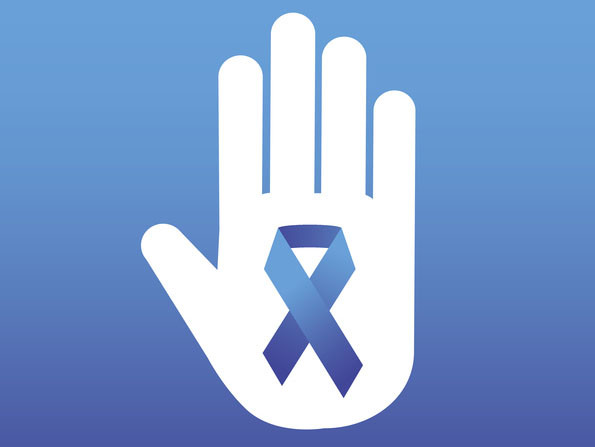
Have family or friends in assisted living facilities? Finding the right gift can be complicated. Health issues may rule out some gifts: cross off sweets or chocolates for those who need to keep blood sugar under control. There isn’t much space for extra belongings in the apartment or room. In some cases, your giftee’s physical or mental capabilities (or both) are declining.
"Any gift you give will probably be appreciated," says Dr. Suzanne Salamon, associate chief of gerontology at Harvard-affiliated Beth Israel Deaconess Medical Center. "But it helps if it’s something the person can really use and will enjoy. Tailor it to their particular ailments, needs, and interests." Below is a roundup that can help you select a great gift for the holidays — or any other occasion.
Gifts for social engagement
"Many people feel lonely and isolated in assisted living facilities. Keeping loved ones socially connected combats that, and also helps ward off chronic disease and cognitive decline," Salamon notes. Gifts that may fit the bill include:
- A simple phone. The easier a phone is to operate, the more likely your loved one will be able to use it. That could be a landline phone with large, easy-to-read numbers ($25 and up), a flip phone ($35 and up), or a smartphone with few buttons and apps ($50 and up). Remember that cell phones come with monthly service costs; prices depend on the carrier.
- A smart speaker. If phone use is too hard for your loved one, consider a smart speaker ($20 and up) that can be programmed to dial important numbers (like yours). Commands can be said aloud at any time to make a call. Check if your loved has internet service, which is needed for smart speaker use.
- A photo book. A loose-leaf photo album (less than $20) or easily created photo book ($10 and more) with recent photos of family and friends may be a warm reminder of connections, or can be a gift to share with others in the assisted living facility. That social interaction is important for health. Plus, it will make the person feel good to see all of those photos of people who love them.
Gifts to aid independence
Health problems can make simple activities challenging. These gifts can give your loved one a little independence.
- Adaptive tools. Your loved one may be able to take back some control of dressing with a long-handled shoehorn, a button hook, or a zipper pull (less than $10 each).
- A magnifying glass. Especially handy for those with impaired vision (and who hasn’t misplaced reading glasses?), having a magnifying glass ($5 and up) is handy for reading or seeing small objects. For a nice upgrade, make it a lighted magnifying glass ($15).
- Handwriting aids. Hand arthritis or neurodegenerative conditions (such as Parkinson’s disease) make writing difficult. Ergonomically-shaped adaptive pens ($10 and up) can help your loved one jot down information or thoughts.
Gifts for sharper thinking skills
"Challenging your brain or learning new information promotes new brain cell connections, which help protect and maintain cognition," Dr. Salamon says. Give your loved one something that will make the process easy and fun, such as the following:
- A daily trivia calendar. (About $15)
- Large-print nonfiction or fiction books. ($5 and up). Audio selections are enjoyable, too.
- Large-print books of brain games and puzzles. ($5 and up)
- A print subscription to a health publication, such as the Harvard Health Letter ($24).
Gifts to ease health issues
A well-chosen gift can bring comfort and help ease health issues. Try addressing someone’s aches and pains with gifts such as:
- A microwavable heat wrap ($15 and up).
- A handheld massager ($5 and up).
Or you could address circulatory problems that make people feel cold or increase the risk for blood clots in the legs. Ideas include:
- A soft fleece blanket ($10 and up).
- Warm slippers with slip-resistant soles ($20 and up).
- Brightly patterned compression stockings with fun designs ($15 and up). Be sure to check the size so they aren’t too small for your loved one.
Gifts to track health
Even though assisted living facility staffers monitor residents’ health, your loved one may find it useful to have one of the following gifts:
- A blood pressure monitor ($30 and up). Look for one with a cuff that goes around the upper arm; inflates automatically; has a lighted background with large numbers; and is certified by the Association for the Advancement of Medical Instrumentation, the British Hypertension Society, or the European Society of Hypertension.
- A digital "stick" thermometer ($10 and up). The right one will be large and easy to hold, with a lighted background and large numbers.
Not quite right?
Keep thinking. A nice, warm fleece sweater ($20 and up)? Extra reading glasses to place in favorite nooks ($15 and up)? If none of these ideas is right, consider giving a healthy treat. A great choice right now is fresh citrus (send a box for $30 and up). "Avoid grapefruit, which can interfere with certain medications," Dr. Salamon advises, "but oranges or tangerines are sweet and rich in vitamin C, which supports a healthy immune system. And that’s a great gift."


